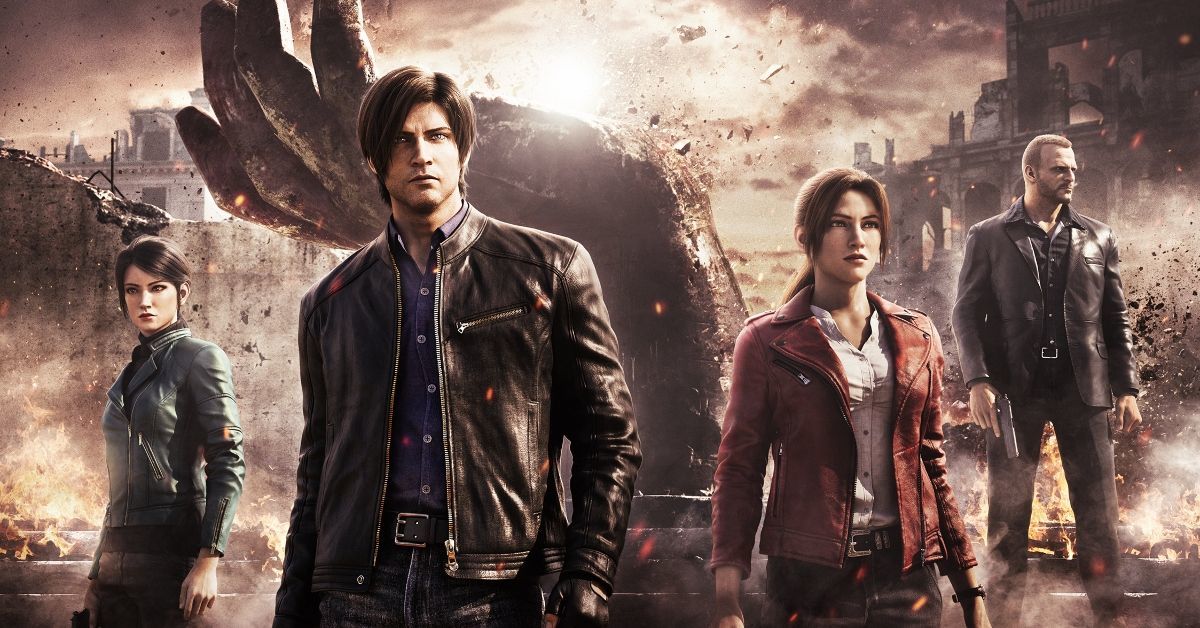Resident Evil is in the midst of a whole new wave of projects. Not only did the original video game franchise release a new entry earlier this year, but there are also plans in place for a new, rebooted live-action take. But these are not the only new releases we’re getting from Capcom’s famous horror series as Resident Evil has branched out with its very first anime series with Netflix. Taking on an original story set within the world of Resident Evil, Resident Evil: Infinite Darkness is a true test of whether or not it fits into the anime medium.
Videos by ComicBook.com
This was a trial by fire for director Eiichiro Hasumi as well. Previously only attached to live-action films, this was Hasumi’s first anime directorial work. Although production company studio Quebico has worked on CG productions for the Resident Evil franchise in the past with releases like Resident Evil: Vendetta back in 2017, Infinite Darkness was a first outing on many fronts. Now the major question is, did it succeed? The answer is yes, but probably more so if you’re already aware of what the Resident Evil franchise offers.

You don’t need much prior knowledge from the original Resident Evil video game franchise to jump into Resident Evil: Infinite Darkness, but it does help smooth over some of the edges. You’ll need a general awareness of Resident Evil‘s world such as settings like Raccoon City, and the main viruses and companies usually involved in the games. Thankfully, it’s not necessary to have an encyclopedic memory as there is enough context provided here for new viewers, though experienced fans will enjoy it that much more.
Reuniting Leon S. Kennedy and Claire Redfield (who once fought to survive together during the events of Resident Evil 2), Infinite Darkness sees the two of them discover a government conspiracy involving the familiar zombie virus from the series through two different angles. Leon sees it from the military side, and Claire uses her investigative skills to dig deeper into its impact on the public.
The four-episode series features a self-contained story that can fit right into the canon of the main games while also giving itself enough space to explore its own stories and new characters. It’s briskly paced, so it’s built with the idea of binge-watching in mind, but it’s also, thankfully, not a movie chopped up into four parts. Each episode is distinct in its own way, but also moves the greater story forward to keep a cohesive package.
This brisk pace can sometimes make some of the story reveals a little questionable as they might not completely click without that outside prior knowledge (such as the villain’s final form), yet that brevity also makes it a more entertaining experience overall. The series moves quickly from cool set-piece to cool set-piece, and Hasumi’s live-action directorial experience can be seen through how each of these scenes progress.

Not only does the CG animation in Infinite Darkness look incredible, but it feels weighted as characters move and act like they would in a live-action film. It’s not bogged down by that either as there is plenty of room for experimentation granted by the medium. For example, there’s a pretty slick scene where Leon has to deal with a horde of zombified rats. Not only does the animation take this to a fantastical new level due to just how gross yet cool-looking each of the rats appears (and just how many there are overall), but the frantic and attentive camera work keeps it grounded and horrific.
As Resident Evil fans know, the balance of horror and more outlandish elements is what makes the franchise so special. It’s the same for Infinite Darkness, as, while there definitely is a more grounded story being told, it’s all amplified that much more thanks to what was gained through the anime medium. Resident Evil: Infinite Darkness is definitely a must-watch for fans, and while new viewers might be slightly disconnected, it’s a fun, cool ride worth checking out anyway.
Rating: 4 out of 5
Resident Evil: Infinite Darkness debuts on Netflix worldwide on July 8th.








